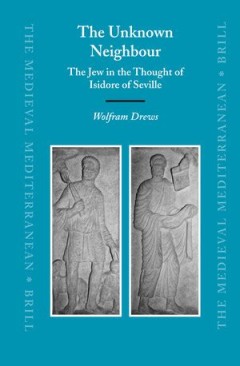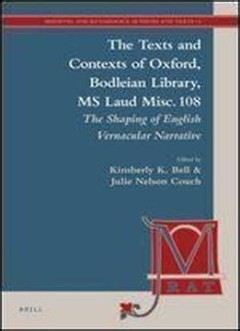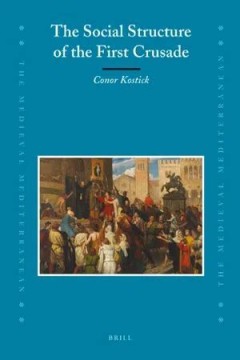Filter by

A Brief History of Islam in Europe : Thirteen Centuries of Creed, Conflict an…
This book presents an overall presentation and discussion of developments ever since Islam appeared on the European stage thirteen centuries ago. The events and stories presented increase the understanding of present debates on, and notions of, Islam and Muslims in Europe. This book shows that in the course of thirteen centuries the Muslim as well as Islam have undergone many metamorphoses. The…
- Edition
- -
- ISBN/ISSN
- -
- Collation
- -
- Series Title
- -
- Call Number
- -

The Ndebele, Frank Oates, and Knowledge Production in the 1870s = Encounters …
This open access book addresses a question fundamental to the histories of empire and Africa: at the point of the colonial encounter, how was knowledge made? How did different communities, with little or no prior contact, construct meaning about one another? Amidst huge changes in the politics and economics of a continent, on the cusp of almost complete colonization at the hands of European pow…
- Edition
- -
- ISBN/ISSN
- 9783031759635
- Collation
- IX, 125 hlm; ill., lamp.,
- Series Title
- -
- Call Number
- -

Women, Consumption, and the Circulation of Ideas in South-Eastern Europe, 17t…
Women, fashion, consumption, luxury, and education are the main subjects of our researchers. The contributors of this volume accompanied women and objects in their travels across Modern Europe and offered thorough and diverse analyses connecting the circulation of people with the circulation of ideas. Making use of archive materials, visual sources and museum collections, the authors point out…
- Edition
- -
- ISBN/ISSN
- 9789004355095
- Collation
- 244 hlm; ill., lamp.,
- Series Title
- Balkan Studies Library, Volume: 20
- Call Number
- -

Napoleonic Governance in the Netherlands and Northwest Germany
“Van der Burg presents an innovative transregional study of Napoleonic governance in the often-overlooked northern periphery of the Empire. This book carefully examines the Empire’s administrative structure in the north, focusing on the heterogeneous community of prefects and subprefects as ‘tools of incorporation’, binding the regions to the central state. His rich comparative analysis…
- Edition
- 1
- ISBN/ISSN
- 978-3-030-66658-3
- Collation
- oer.unej.ac.id
- Series Title
- War, Culture and Society, 1750–1850
- Call Number
- -

Feeling Political
Historicizing both emotions and politics, this open access book argues that the historical work of emotion is most clearly understood in terms of the dynamics of institutionalization. This is shown in twelve case studies that focus on decisive moments in European and US history from 1800 until today. Each case study clarifies how emotions were central to people’s political engagement and its …
- Edition
- -
- ISBN/ISSN
- 978-3-030-89858-8
- Collation
- oer.unej.ac.id
- Series Title
- Palgrave Studies in the History of Emotions
- Call Number
- -

Tradition, Transmission, Transformation = Proceedings of Two Conferences on P…
This volume is the outcome of two conferences held at the University of Oklahoma in 1992 and 1993 which dealt with issues of transmission and subsequent cultural transformations that occurred in the premodern histories of mathematics and science. Some twenty contributors explore transmission from a variety of perspectives, including the role of language and other facets of culture in the trans…
- Edition
- -
- ISBN/ISSN
- 9789004625747
- Collation
- 591 hlm; ill., lamp.,
- Series Title
- Collection de Travaux de l'Académie Internationale d'Histoire des Sciences, Volume: 37
- Call Number
- -

The Unknown Neighbour = The Jew in the Thought of Isidore of Seville
This book provides a detailed analysis of Isidore of Seville's attitude towards Jews and Judaism. Starting out from his anti-Jewish work De fide catholica contra Iudaeos, the author puts Isidore's argument into the context of his entire literary production. Furthermore, he explores the place of Isidore's thinking within the contemporary situation of Visigothic Spain, investigating the political…
- Edition
- -
- ISBN/ISSN
- 9789047408925
- Collation
- -
- Series Title
- The Medieval Mediterranean, Volume: 59
- Call Number
- -

The Twentieth Century in European Memory = Transcultural Mediation and Reception
The Twentieth Century in European Memory investigates contested and divisive memories of conflicts, world wars, dictatorship, genocide and mass killing. Focusing on the questions of transculturality and reception, the book looks at the ways in which such memories are being shared, debated and received by museum workers, artists, politicians and general audiences. Due to amplified mobility and c…
- Edition
- -
- ISBN/ISSN
- 9789004352353
- Collation
- 364 hlm; ill., lamp.,
- Series Title
- European Studies, Volume: 34 European Studies, Volume: 34
- Call Number
- -

The Texts and Contexts of Oxford, Bodleian Library, MS Laud Misc. 108 = The S…
The late thirteenth-century, monolingual Oxford manuscript, Bodleian Library, MS Laud Misc. 108, bears singular importance to medieval studies, for it preserves and anthologizes unique versions of several seminal Middle English texts, including South English Legendary, Havelok the Dane, and King Horn and Somer Soneday. While critics have traditionally classified these poems by genre, this book …
- Edition
- -
- ISBN/ISSN
- 9789004192249
- Collation
- 368 hlm; ill., lamp.,
- Series Title
- Medieval and Renaissance Authors and Texts, Volume: 6
- Call Number
- -

The Social Structure of the First Crusade
The First Crusade (1096 – 1099) was an extraordinary undertaking. Because the repercussions of that expedition have rippled on down the centuries, there has been an enormous literature on the subject. Yet, unlike so many other areas of medieval history, until now the First Crusade has failed to attract the attention of historians interested in social dynamics. This book is the first to examin…
- Edition
- -
- ISBN/ISSN
- 9789047445029
- Collation
- 336 hlm; ill., lamp.,
- Series Title
- The Medieval Mediterranean, Volume: 76
- Call Number
- -
 Computer Science, Information & General Works
Computer Science, Information & General Works  Philosophy & Psychology
Philosophy & Psychology  Religion
Religion  Social Sciences
Social Sciences  Language
Language  Pure Science
Pure Science  Applied Sciences
Applied Sciences  Art & Recreation
Art & Recreation  Literature
Literature  History & Geography
History & Geography